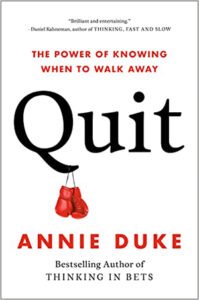|
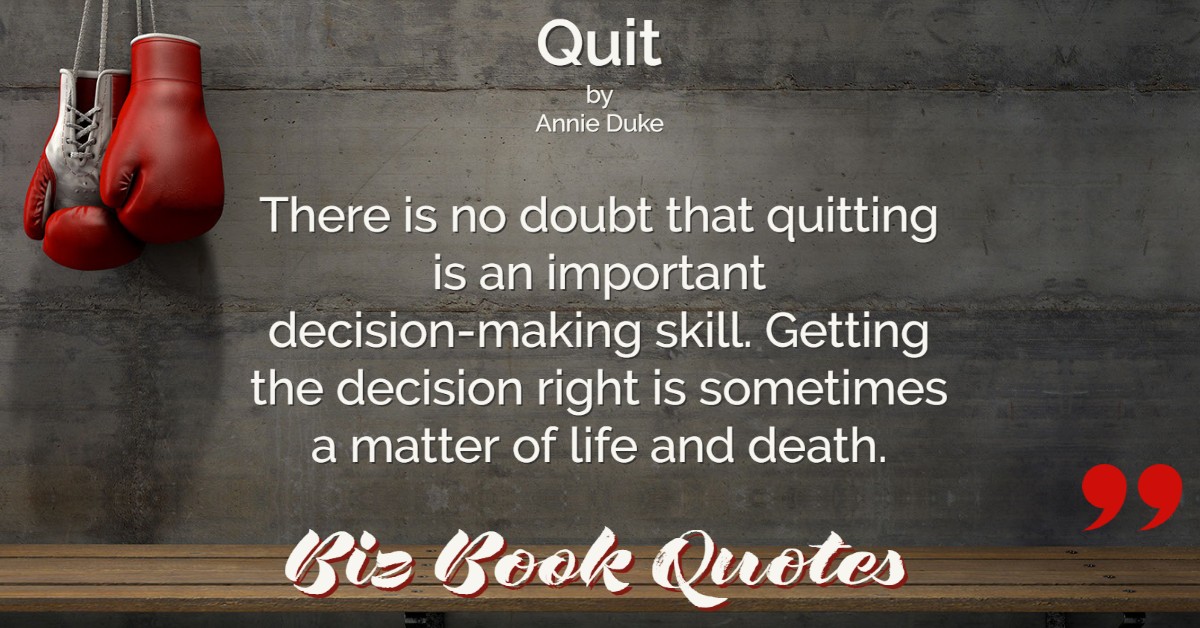
|
Quit:
There is no doubt that quitting is an important decision-making skill. Getting the decision right is sometimes a matter of life and death.
|
9 |
|
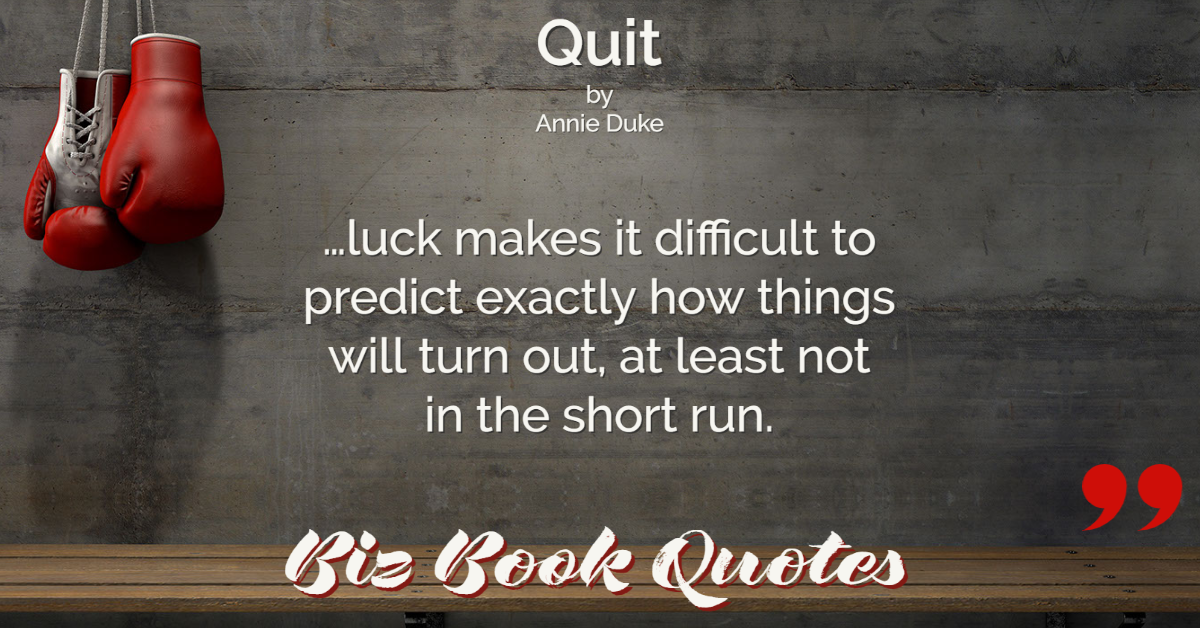
|
Quit:
…luck makes it difficult to predict exactly how things will turn out, at least not in the short run.
|
11 |
|
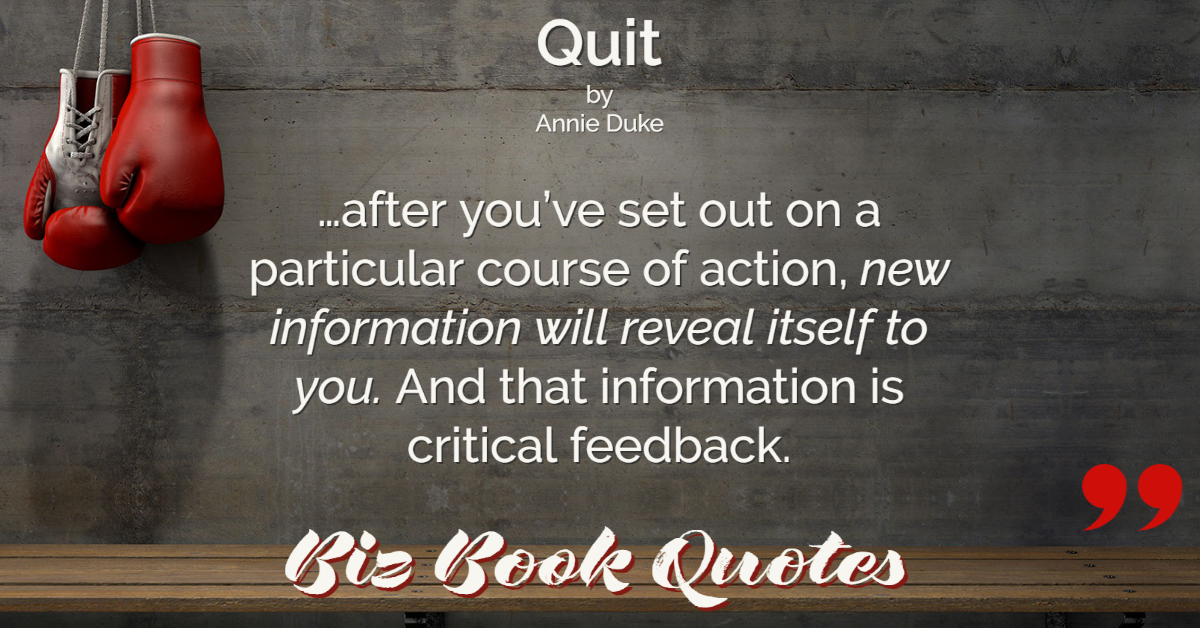
|
Quit:
…after you’ve set out on a particular course of action, new information will reveal itself to you. And that information is critical feedback.
|
11 |
|
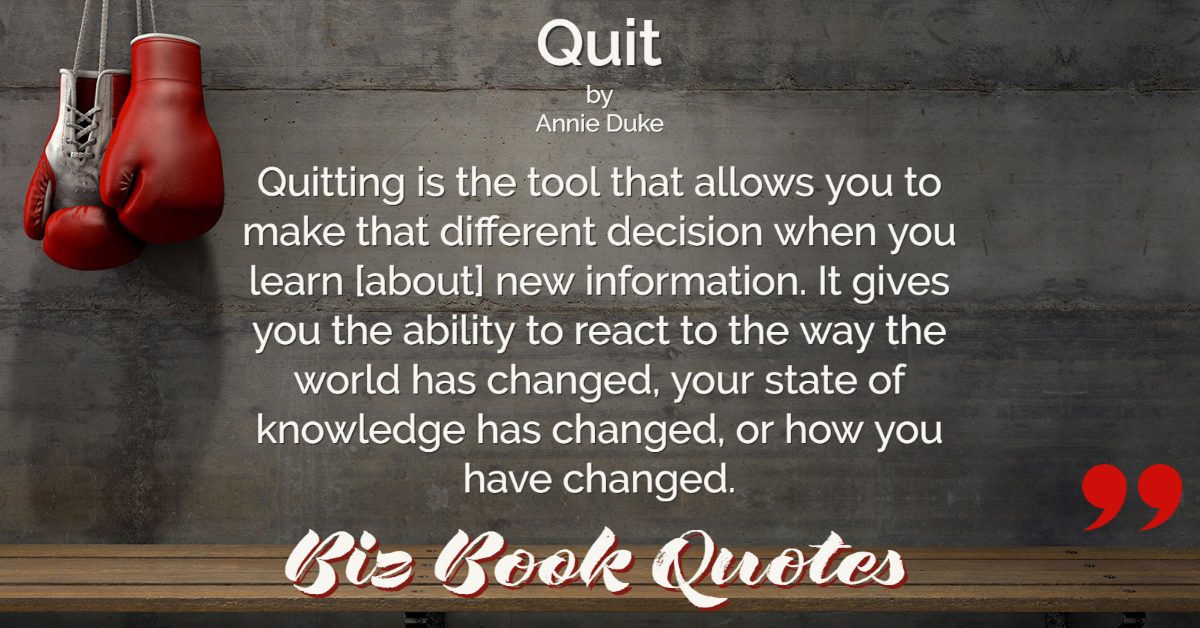
|
Quit:
Quitting is the tool that allows you to make that different decision when you learn [about] new information. It gives you the ability to react to the way the world has changed, your state of knowledge has changed, or how you have changed.
|
12 |
|

|
Quit:
…it’s so important to skill up on quitting, because having the option to quit is what will keep you from being paralyzed by uncertainty or being stuck forever in every decision you make.
|
12 |
|
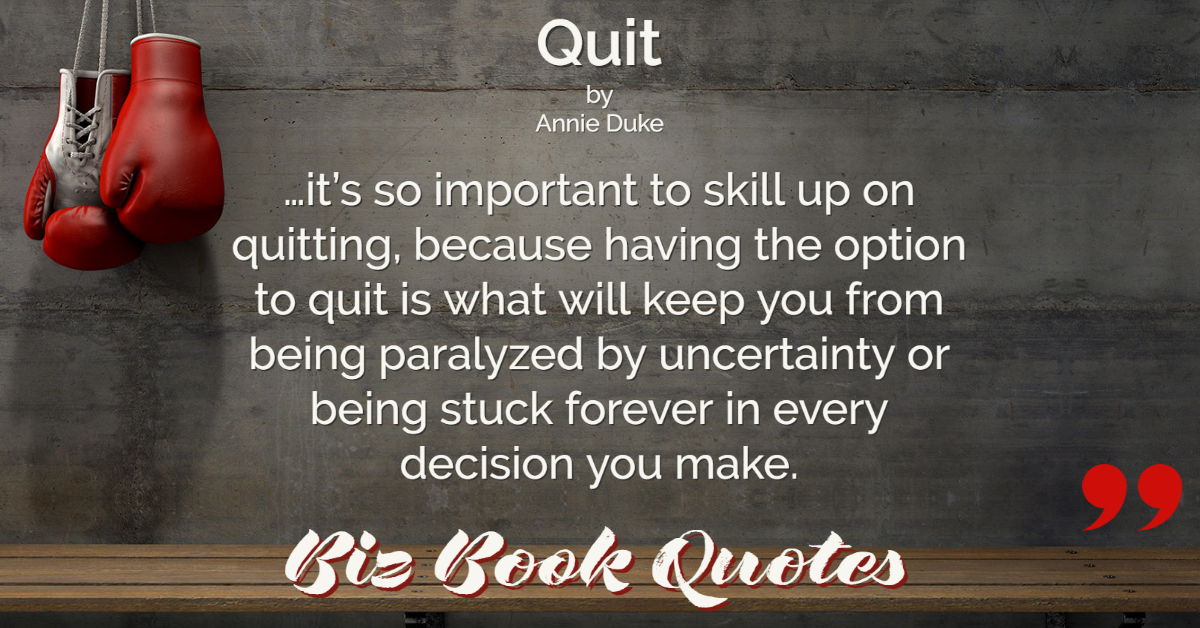
|
Quit:
While it is true that quitting is one of your most important tools for making good decisions under uncertainty, it is also true that uncertainty is an impediment to making good decisions about quitting.
|
14 |
|
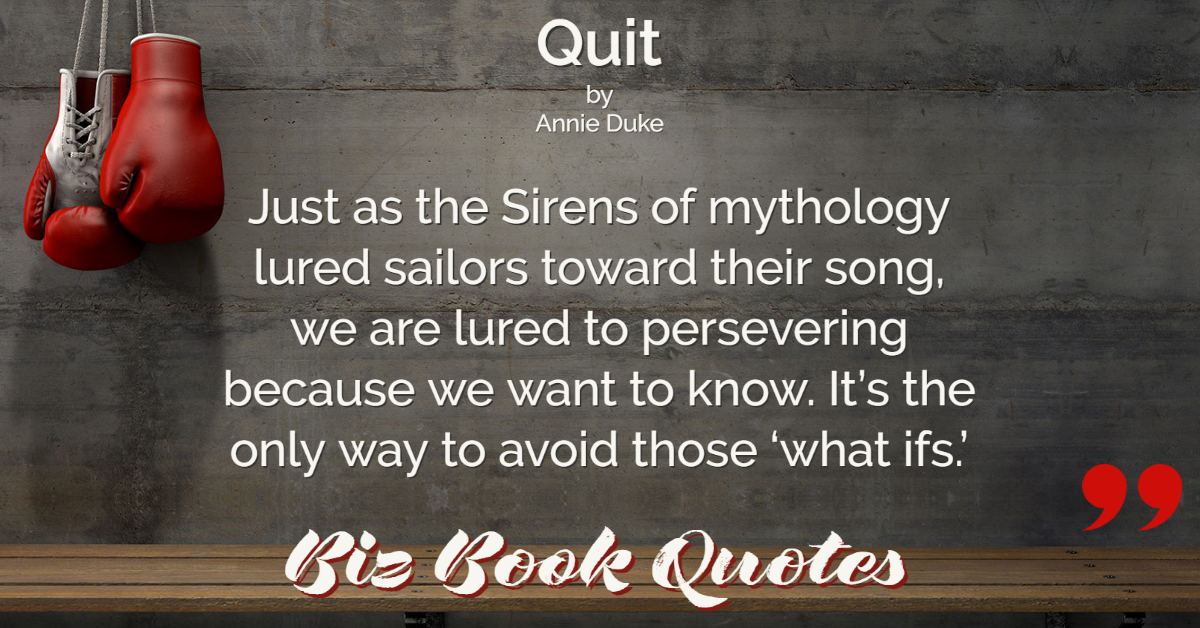
|
Quit:
Just as the Sirens of mythology lured sailors toward their song, we are lured to persevering because we want to know. It’s the only way to avoid those ‘what ifs.’
|
15 |
|
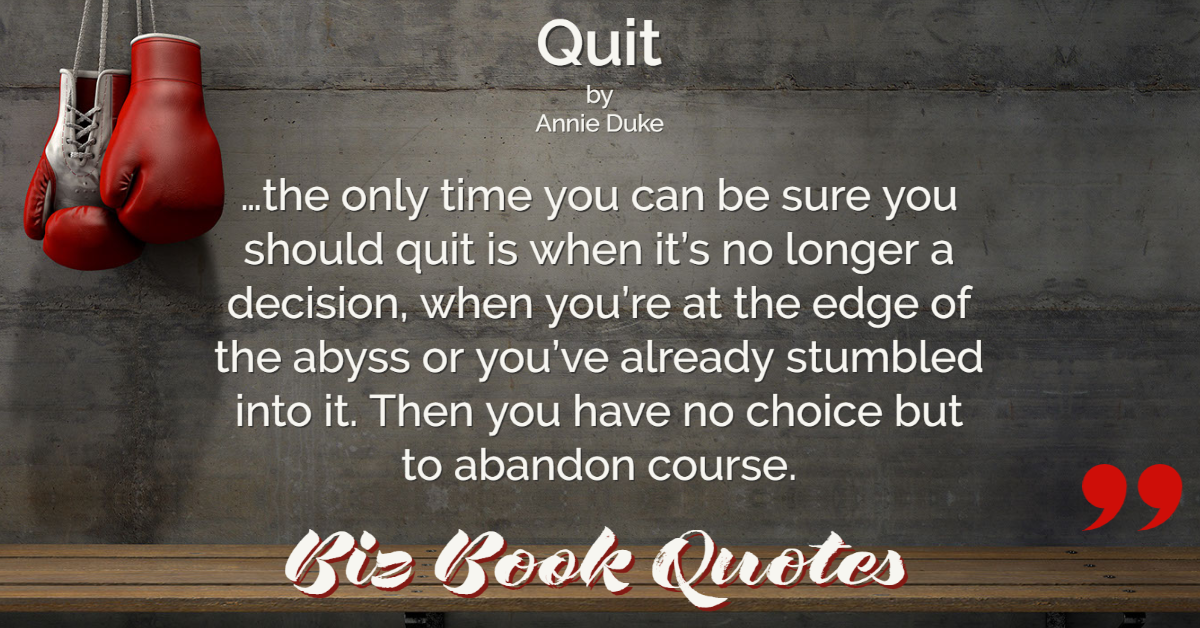
|
Quit:
…the only time you can be sure you should quit is when it’s no longer a decision, when you’re at the edge of the abyss or you’ve already stumbled into it. Then you have no choice but to abandon course.
|
15 |
|
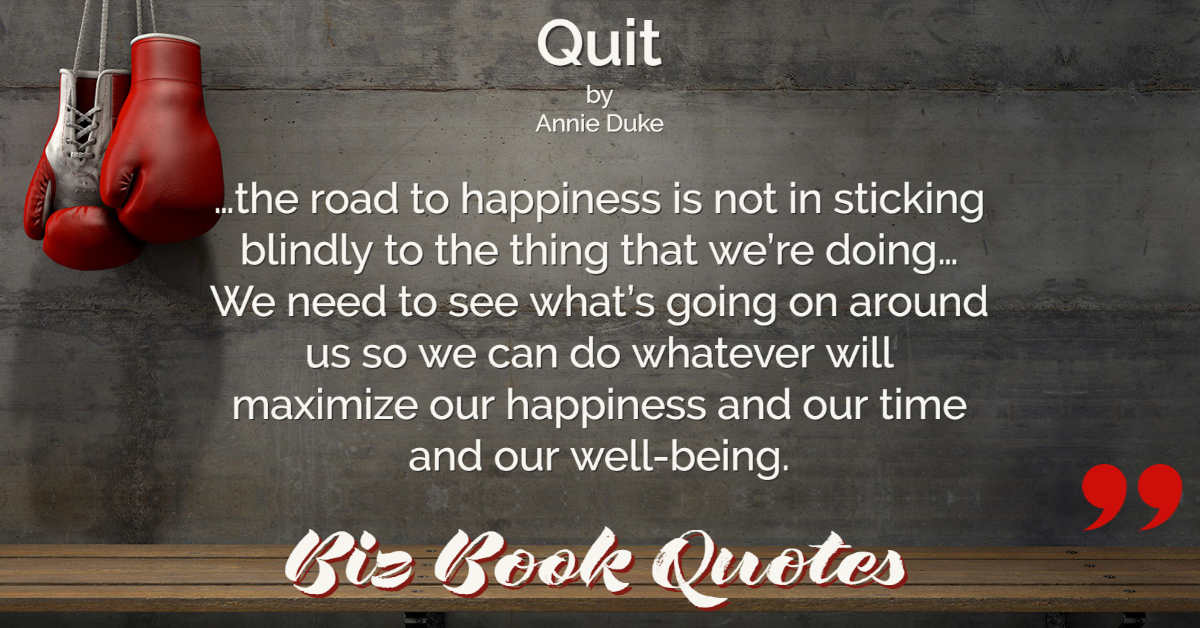
|
Quit:
…the road to happiness is not in sticking blindly to the thing that we’re doing… We need to see what’s going on around us so we can do whatever will maximize our happiness and our time and our well-being.
|
17 |
|
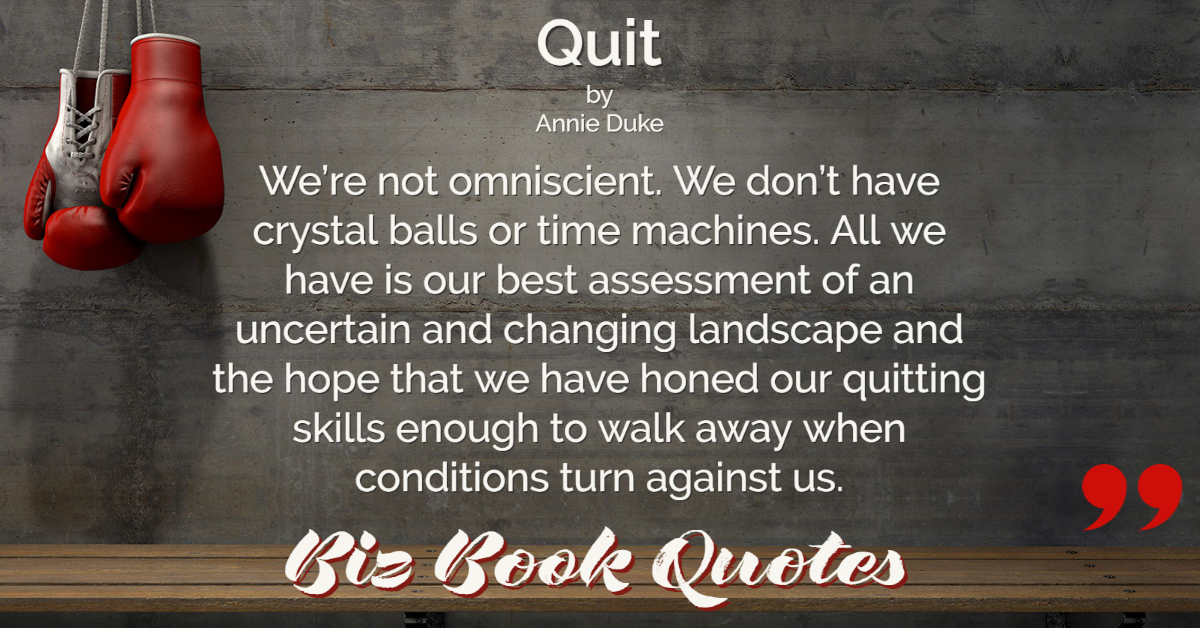
|
Quit:
We’re not omniscient. We don’t have crystal balls or time machines. All we have is our best assessment of an uncertain and changing landscape and the hope that we have honed our quitting skills enough to walk away when conditions turn against us.
|
21 |
